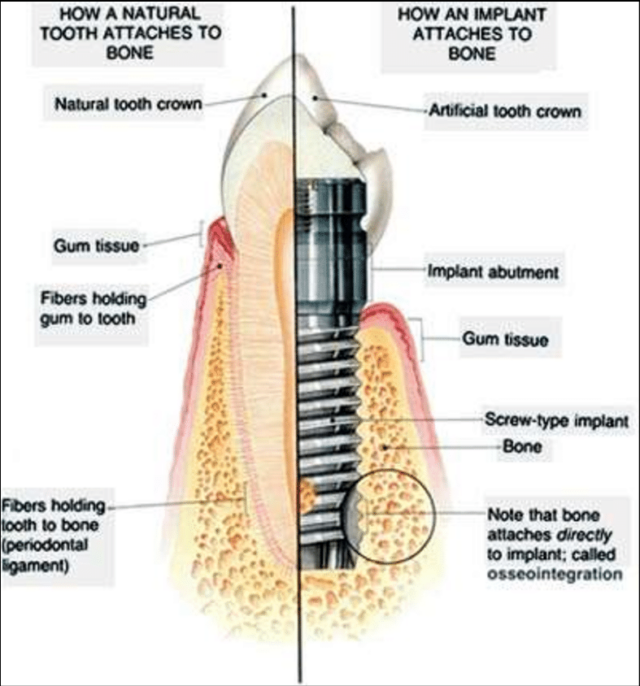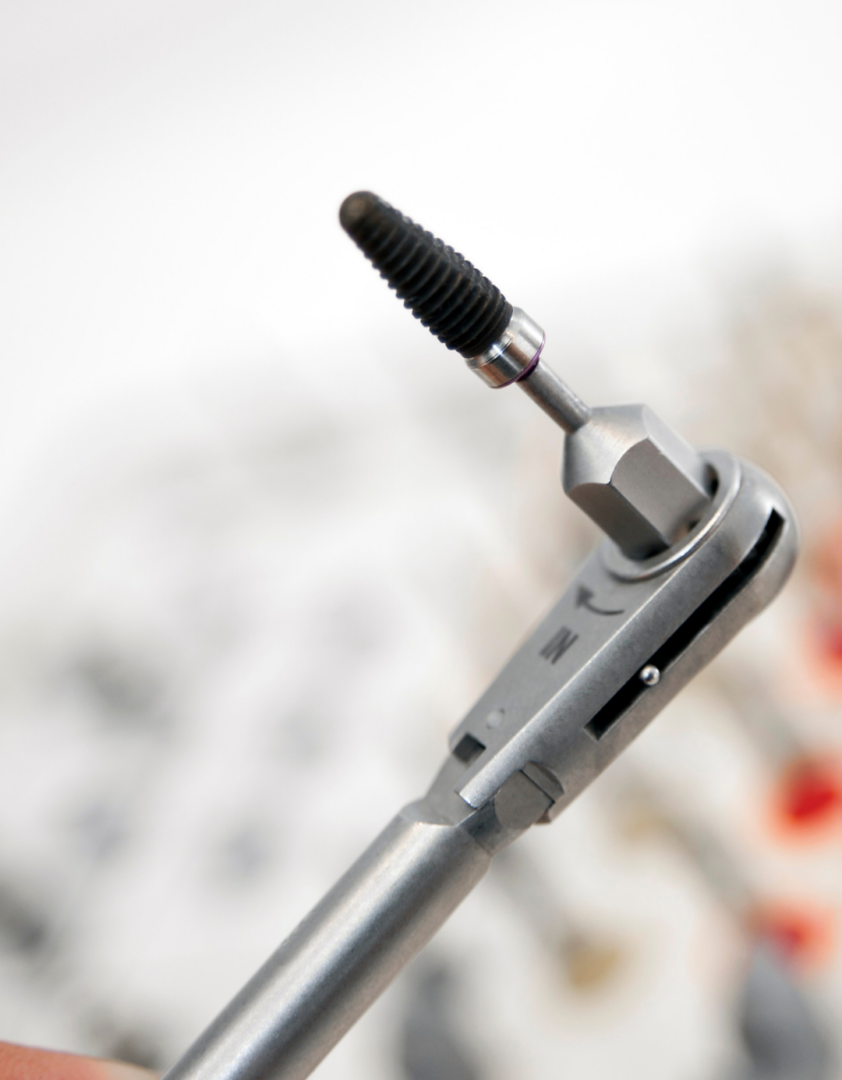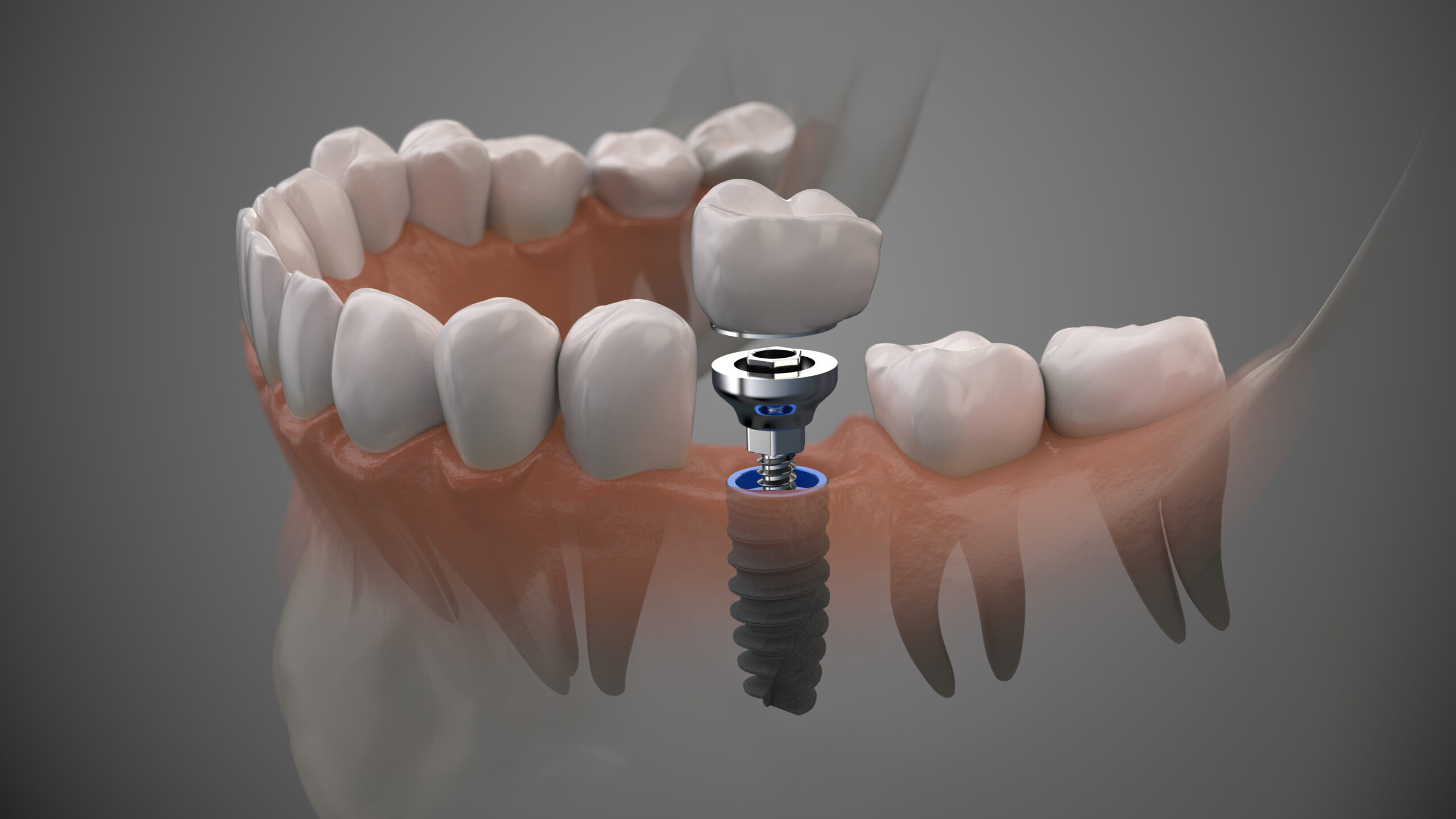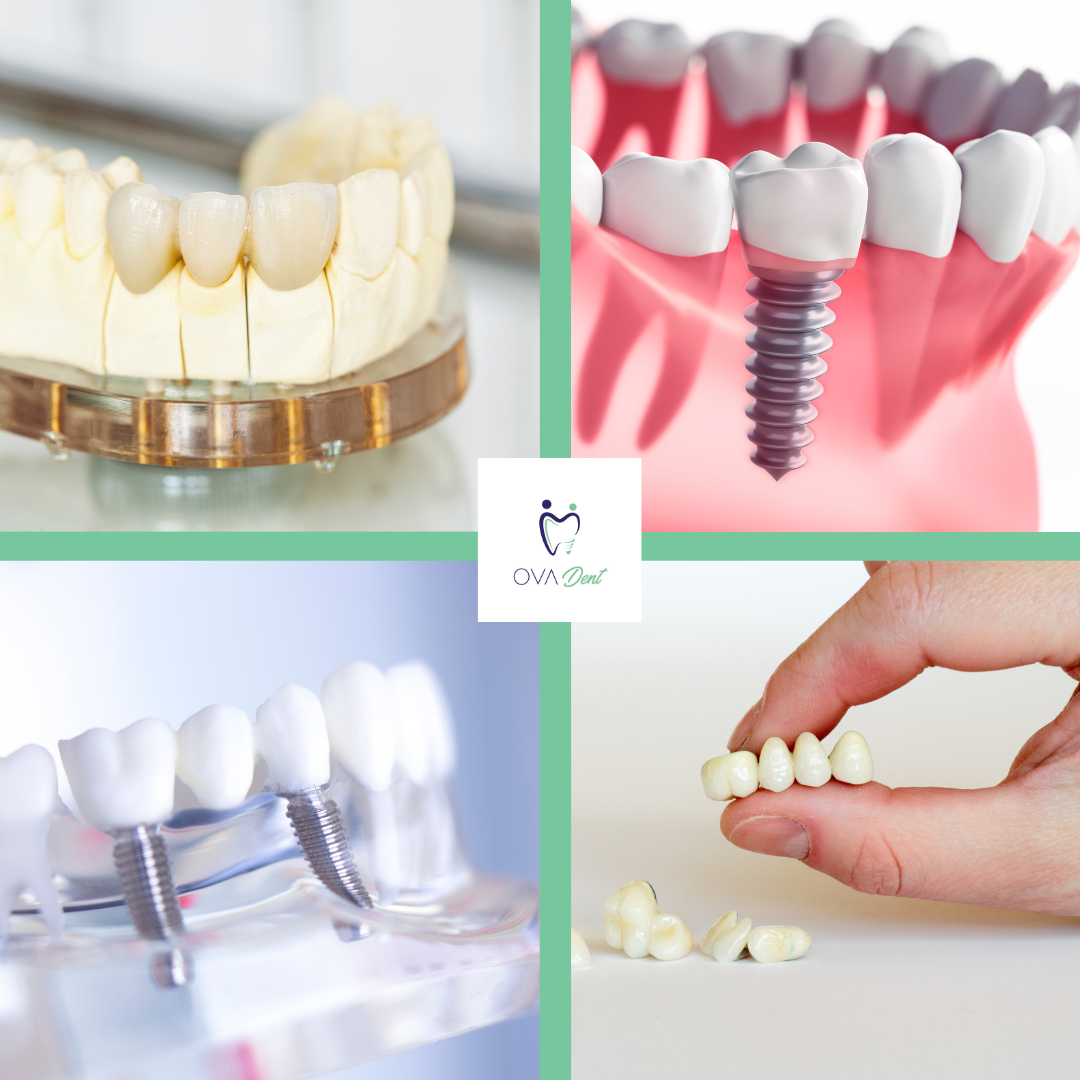Fortifying a Great Smile: The Enduring Strength of Dental Implants
When we discuss the long-lasting and durable nature of dental implants with proper care, we’re highlighting how implants offer a reliable and resilient solution for tooth replacement. Here’s an elaboration on this point:

Material and Construction:
Dental implants are typically made of biocompatible materials such as titanium, which integrate well with the jawbone and have a high degree of durability. The implant itself serves as a sturdy foundation for the prosthetic tooth or teeth, providing stability and support for chewing, biting, and other oral functions.
Integration with Jawbone:
Through the process of osseointegration, dental implants become firmly anchored within the jawbone over time. This integration strengthens the bond between the implant and the surrounding bone tissue, creating a stable and long-lasting foundation for the restoration. With proper healing and integration, dental implants can withstand the forces of chewing and biting, offering a reliable and resilient solution for tooth replacement.
Resistance to Decay and Damage:
Unlike natural teeth, dental implants are not susceptible to decay or cavities. However, it’s essential to maintain good oral hygiene practices to prevent gum disease and peri-implantitis, which can compromise the health of the surrounding tissues. With proper care, including regular brushing, flossing, and routine dental check-ups, dental implants can remain functional and aesthetically pleasing for many years.
Professional Maintenance:
Regular maintenance and professional dental care are crucial for ensuring the longevity of dental implants. Dentists may recommend periodic examinations and cleanings to monitor the health of the implant and surrounding tissues, as well as to address any issues promptly. By staying proactive with dental care and addressing concerns early, patients can maximize the lifespan of their dental implants and enjoy long-term benefits.
Investment in Oral Health:
While dental implants may involve a higher initial investment compared to other tooth replacement options, their long-term durability and reliability make them a cost-effective solution over time. With proper care and maintenance, dental implants can provide patients with restored oral function, enhanced aesthetics, and improved quality of life for many years to come.
Fortify” means to strengthen or reinforce something, often with the intention of making it more resilient or robust. This can be acheive with oral health of teeth and gums when using dental implants. Dental implants strengthen and enhance the smile, providing long-lasting and enduring support for the tooth replacement.
Dental implants have the potential to fortify the bone and gums in several ways:
- Osseointegration: One of the primary reasons dental implants are highly successful is their ability to osseointegrate with the jawbone. During osseointegration, the titanium implant fixture fuses with the surrounding bone tissue, creating a strong and stable bond. This integration process not only anchors the implant securely in place but also stimulates the surrounding bone, promoting bone density and preventing bone loss. As a result, the jawbone remains healthy and fortified around the implant site.
- Preservation of Bone Structure: Tooth loss can lead to bone resorption, where the jawbone gradually diminishes in density and volume over time. Dental implants serve as artificial tooth roots, providing functional stimulation to the jawbone when chewing and biting. This stimulation helps preserve the natural bone structure by preventing bone resorption and maintaining bone density. By fortifying the jawbone, dental implants support overall oral health and prevent the collapse of facial features associated with bone loss.
- Maintaining Gum Tissue Integrity: Dental implants also contribute to the preservation of gum tissue integrity around the implant site. The presence of a dental implant and its restoration helps maintain the natural contours of the gums, preventing gum recession and preserving the aesthetics of the smile. Healthy gum tissue provides essential support for the implant and helps seal the area against bacteria, reducing the risk of gum disease and inflammation.
- Distributing Chewing Forces: Unlike traditional dentures or bridges, which may exert uneven pressure on the underlying bone and gums, dental implants distribute chewing forces more evenly across the jawbone. This balanced distribution of forces reduces the risk of pressure points and trauma to the bone and soft tissues, promoting long-term oral health and stability.
- Long-Term Stability: With proper care and maintenance, dental implants can provide long-term stability and support for replacement teeth. Dental implants offer a durable and reliable solution for tooth replacement, enhancing overall oral function and quality of life for individuals with missing teeth.
In summary, dental implants offer a long-lasting and durable solution for tooth replacement when proper care and maintenance are observed. Their ability to integrate with the jawbone, resist decay and damage, and withstand the rigors of daily use make them a preferred choice for individuals seeking a reliable and resilient option for restoring their smiles and oral function. They fortify the bone and gums by promoting osseointegration, preserving bone structure, maintaining gum tissue integrity, distributing chewing forces, and providing long-term stability. These benefits contribute to the success and longevity of dental implant treatment, ensuring optimal oral health and function for patients seeking tooth replacement options.
Unsure?-Dental Bridges Vs. Dental Implants-which Is For You (ovadent.com)





